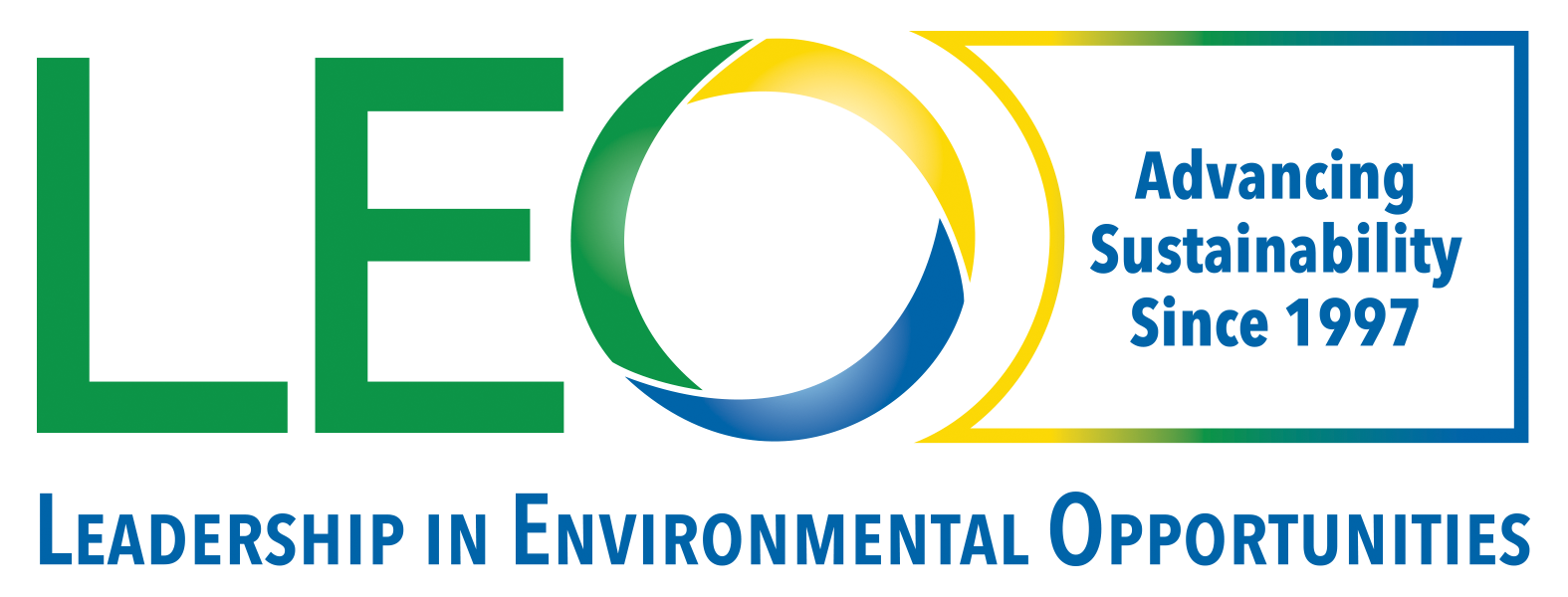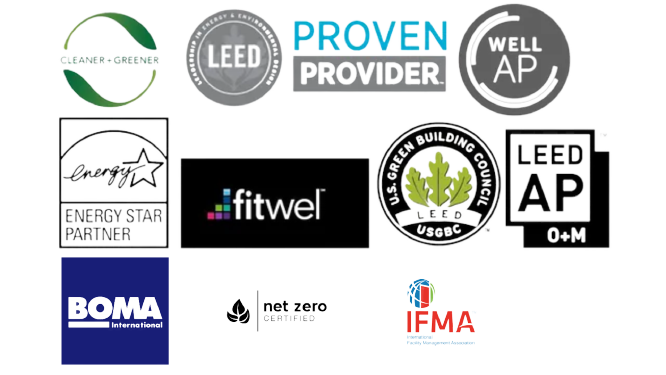Sustainability Standards Program
LEO develops and maintains sustainability standards to help guide sustainable actions and to help create competitive markets for sustainable goods, services and organizations. We are a member of the American National Standards Institution (ANSI), an organization that coordinates the development and use of voluntary consensus standards in the United States. As an ANSI Accredited Standards Development Organization (SDO), we are actively engaged in the development of consensus standards.
LEO and ANSI Standard Development Process:
LEO American National Standards:
The American National Standard for Sustainable Agriculture (ANSI/LEO-4000)
The LEO-4000 National Sustainable Agriculture Standard will provide one unified measurement for sustainable agriculture that will meet the needs of everyone in the agricultural product supply chain from farmers to distributors, retailers, to consumers. This standard will promote movement toward regenerative agricultural practices that improve the environment, society and the economy.
• One Unified Standard: It will provide one national standard with a comprehensive set of criteria and metrics. Espoused and included in this simple tool will be the many effective certifications and eco-labels already in the field.
• Open for Use by Everyone: Everyone can use this standard because it addresses sustainable agriculture social, economic and environmental needs on all scales. It is an open standard being developed through the American National Standards Institute (ANSI) process. This standard will balance the needs of all levels of the agricultural product supply chain because the development process includes stakeholders with a diverse range of expertise and perspectives.
• Broad Coverage: The first edition of the standard will cover agricultural crops. This agricultural crops edition of the standard was released for public comment in 2012. Future editions will address the rest of agriculture.
• Engages the Marketplace: It will empower the marketplace to drive increased sustainability for agriculture. It creates opportunities for all users to succeed by leveraging individual choices to advance the sustainability of agriculture.
Become a Sustainable Agriculture Advocate:
Promote Sustainability Throughout Your Supply Chain:
Emissions Inventories, Offsets and Reduction Credits Standard
The American National Standard (LEO-5000) for Emissions Inventories, Offsets, and Reduction Credits standard was approved as an American National Standard by the American National Standards Institute (ANSI) on August 9, 2011. This standard was developed under the rules of ANSI. The ANSI standard development requirements provide for an open, balanced and transparent standards-setting process that is internationally recognized. LEO, an ANSI-accredited standards development organization (SDO)
Sustainable Gaming Standard
National Standard for Sustainable Gaming (LEO-8000)
LEO developed a national standard for sustainable gaming and green casinos, under the rules of the American National Standards Institute (ANSI). The ANSI standard development requirements provide for an open, balanced and transparent standards-setting process that is internationally recognized. LEO, an ANSI-accredited standards development organization (SDO), ensured that the ANSI standard development process requirements were followed and that all interested stakeholders had the opportunity to participate in this process.
LEO Standards Under Development:
Sustainable Organizations (LEO-1000)
Description of Standard
LEO is developing an ANSI standard for Sustainable Organizations that defines what a sustainable company or organization is and how its level of sustainability achievements can be measured and documented. The standard will address organizational achievements in the three areas of sustainability – environmental stewardship, social equity, and economic prosperity. Requirements for third-party verification of achievements under this standard will also be addressed.
Benefits of the Standard
With interest in sustainability increasing in the market place, it is difficult for investors, companies and organizations, procurement programs, and consumers to evaluate and compare the sustainability profiles of companies and organizations. By providing a third-party metric for measuring sustainability achievements, the Sustainable Organizations Standard will make it easier to evaluate and compare the sustainability of organizations. This will generate competition just as the US Green Building Council’s LEED Rating System has energized competition among companies and organizations on the relative levels of sustainability of their buildings. By providing clear, practical metrics for sustainability in buildings with third-party verification, the LEED rating system has created a booming sustainable building industry. Likewise the Sustainable Organization Standard will provide the language of commerce for the sustainability of companies and organizations.
Development Process
LEO is an ANSI accredited standard developer. We are following the ANSI standard development procedures, which require openness and transparency in conducting the standard development process. The process includes both standard development by a multi-stakeholder committee, as well as a public comment period. The application period for committee membership runs from June 8, 2010 to August 31, 2010. Applications are accepted on an ongoing basis for future openings on the standard development committee and for participation in the subcommittees. Additional openings are dependent on the need for expertise in critical areas. Please contact LEO to receive an application.
Pilot Testing
LEO will issue a pilot version of the standard to gather feedback from potential users. LEO will hold regular conference calls with the pilot participants to discuss issues and gather their input. If your company or organization wants to participate in the pilot testing of the Sustainable Organizations Standard, please email SO-Standard@leonardoacademy.org . Note: Pilot versions of the standard issues by LEO are not official ANSI standards. Only standards that have been promulgated by ANSI can be recognized as American National Standards.
There are many ways to participate in the Sustainable Organizations Standard development process:
(1) To sign up or request and application please email: SO-Standard@leonardoacademy.org .
(2) Apply to be a member of the standard development committee or subcommittees, or apply to be a process observer
(3) Sign up to participate in the pilot program for the draft standard
(4) Make a charitable donation to support the standard development process. LEO is a charitable (501)(c)(3) non-profit organization so your contribution is tax-deductible to the full extent allowable by law.
The American National Standard for Sustainable Vehicles (LEO-6000)
The American National Standard for Sustainable Events (LEO-7000)
Standard for Sustainability Master Planning (ANSI/LEO-9000)
This standard will be developed using the ANSI standard development process, LEO is an ANSI accredited standard developer and this standard development process has been announced though the ANSI PIS process. Participants in the standard development process are now being recruited.
Specific ANSI/LEO-9000 Sustainability Master Plans for New Jersey , Other Leadership States, Cities and Campuses
The impacts of Hurricane Sandy along the eastern seaboard highlight the need to develop sustainability master plans that can guide and measure sustainability achievements for restoration and for the long term. In other areas where disasters have not occurred, sustainability master plans are also needed to define sustainability goals, steps for getting there and metrics for measuring progress.
Sustainability master planning brings together land use planning, sustainability for the built environment, waste management, energy efficiency, energy supply, renewable energy, transportation, water management, resource management, recreation and preservation. It takes the vision of a sustainable future for an area and makes it concrete by defining sustainability goals, implementation steps and metrics for measuring progress.
The Strategy
The LEO-9000 Sustainability Master Plan standard for sustainability master planning will be developed in tandem with the sustainability master plan for New Jersey and other states affected by Hurricane Sandy. The interplay between the development of the standard and the state-specific plans will inform and energize both processes. Eric Hansel, CEO of Navantas and Michal Arny, President of LEO, are working together to launch this process and to drive it to timely completion.
The Standard and State Plans Being Developed
This LEO-9000 Sustainability Master Plan standard will address how to develop a sustainability master plan for an area. It will be scalable so that it can be applied to wide range of areas, such as multi-state regions or states, as well as smaller areas like corporate, government and university campuses. It will address all three aspects of sustainability – environmental, social and economic for the region/area – and define the current and target levels of sustainability, the steps and time tables required to reach the targets, and performance metrics.
The Benefits of the LEO-9000Sustainability Master Plan Standard for the Public and Businesses
Sustainability standards provide a framework that defines sustainability objectives, paths for reaching them and parameters for measuring achievements. Sustainability standards also provide recognition that helps to create incentives and a language of commerce around achieving sustainability goals. The public benefits from sustainability standards by living in a healthier environment and businesses benefit from the clearly-defined framework that gives them a new opportunity to compete and be recognized for their progress on sustainability implementation. An example of this is the U.S. Green Building Council’s Leadership for Energy and Environmental Design (LEED®) standard rating system for buildings, which has transformed the building industry into being more sustainable.
Standard for Type III Life-Cycle Impact Profile Declarations for Products, Services and Systems (LEO-SCS-002)
Developing the Standard
LEO is managing the development of a national standard for Type III Life-Cycle Impact Profile Declarations for Products, Services and Systems (LEO-SCS-002), under the rules of the American National Standards Institute (ANSI). The ANSI standard development requirements provide for an open, balanced and transparent standards-setting process that is internationally recognized. LEO, an ANSI-accredited standards development organization (SDO).
BACKGROUND:
Objective
The objective of the Type III Life-Cycle Impact Profile Declarations for Products, Services and Systems Standard (LEO-SCS-002) is to specify the life-cycle impact assessment (LCIA) methods, scope, metrics and format for declarations. The LEO-SCS-002 standard will comply with the requirements of ISO 14044 and ASTM draft standard E06.71.10. LEO-SCS-002 is intended to develop a uniform and
standardized format for properly reporting the environmental life-cycle impacts of any system studied and explicitly excludes weighting
factors and interpretation of LCIA results.
Need for the Standard
Products, services and systems can have significant environmental impacts. These impacts can vary depending upon facilities and their energy sources, technologies in place, material and energy input sources, and the surrounding environments. Frequently, changes made to improve environmental performance, particularly for one aspect, can result in unintended trade-offs. In order to make informed decisions and minimize trade-offs, it is necessary to have verifiable environmental performance data and information in a consistent format, based on a full life-cycle impact assessment.
Process Stakeholders
Stakeholders include, but are not limited to:
- Service industries and their clients
- Building industry professionals
- Building owners and operators
- Material and product manufacturers, suppliers and retailers
- Energy and utility providers
- Policy makers and government representatives
- Environmental advocacy groups
- Consumer group
- Academics
- Other interested parties

